NHRC, India’s National Conference on Mental well-being: Navigating Stress from Classroom to Workplace concludes with various suggestions
Press release
National Human Rights Commission
New Delhi: 13th December, 2024
NHRC, India’s National Conference on Mental well-being: Navigating Stress from Classroom to Workplace concludes with various suggestions
NHRC Acting Chairperson, Smt Vijaya Bharathi Sayani calls for creating a world where mental health is not an afterthought but a fundamental aspect of how we live, work, and thrive
The conference calls for a comprehensive approach to identify the causes of stresses from classrooms to workplaces, streamlining life and work ethics to contribute more meaningfully to society
The National Human Rights Commission (NHRC), India organised a day-long National Conference on ‘Mental Well-being: Navigating Stress from Classroom to Workplace’ at Vigyan Bhavan, New Delhi. The conference brought together experts, policymakers, and stakeholders to discuss the relationship between mental health, stress, and well-being.
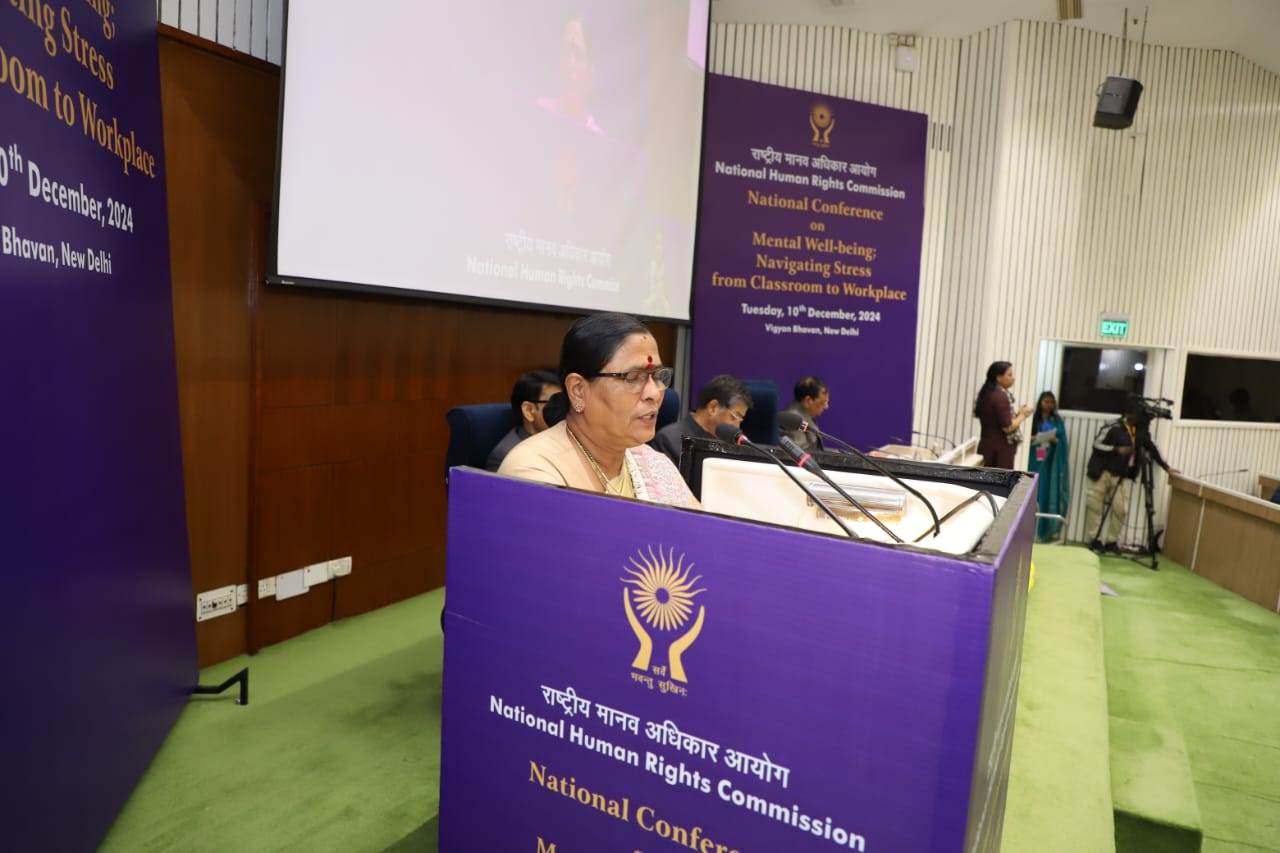
Delivering the keynote address in the inaugural session, NHRC, India Acting Chairperson, Smt Vijaya Bharathi Sayani called for creating a world where mental health is not an afterthought but a fundamental aspect of how we live, work, and thrive. Teachers and administrators must also be trained to recognise signs of distress and provide timely support to students. While digital tools have revolutionised education, they also bring challenges such as the distractions of social media, cyber-bullying, and the overwhelming exposure to information. The always-online culture often leaves little room for reflection or mental rest, further amplifying stress.
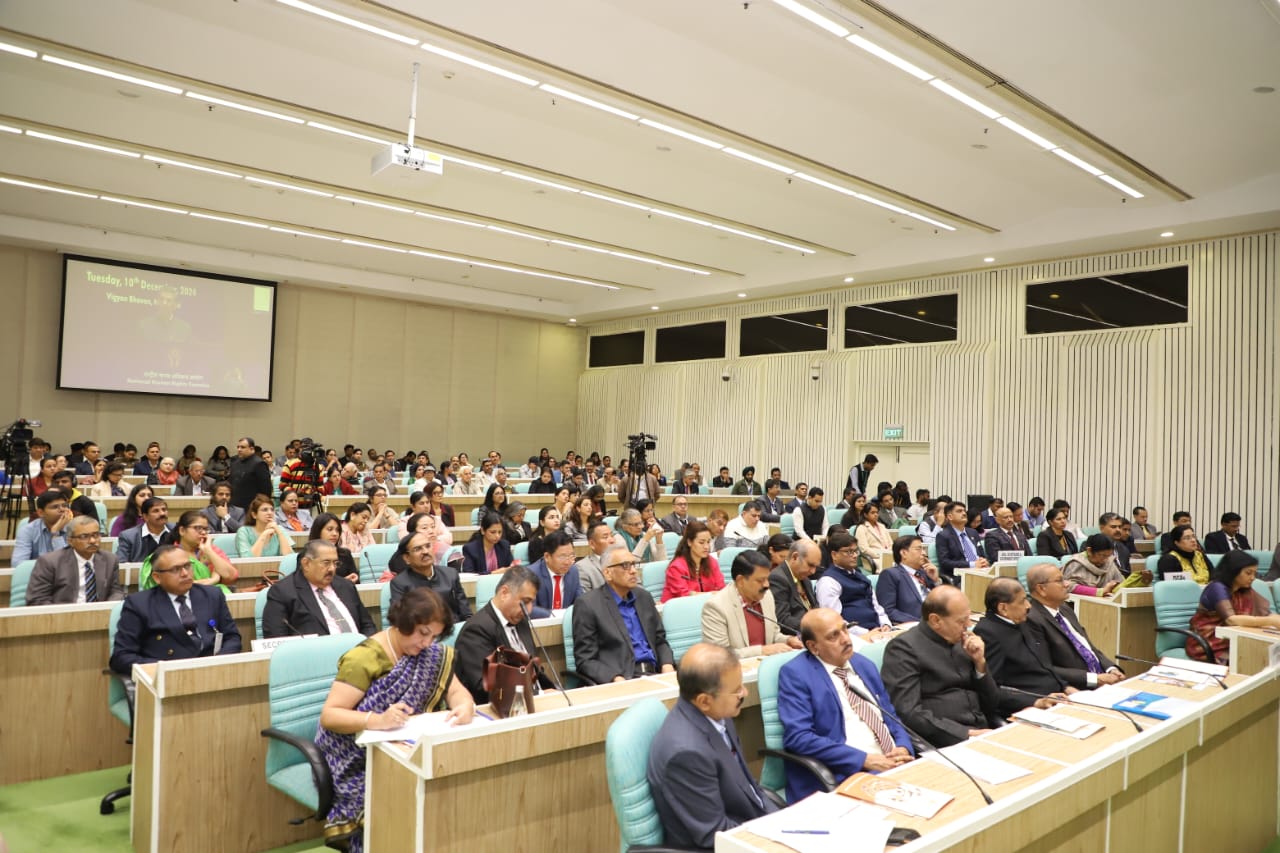
Referring to workplace stresses, the NHRC, India Acting Chairperson said that organizations must go beyond wellness programs and foster a genuine culture of empathy and care. She emphasised that the pressures of work are not limited to employees at the beginning of careers but across all levels of the professional hierarchy. The role of families and communities cannot be understated. Supportive relationships are the cornerstone of mental well-being. By acknowledging that mental health is a shared responsibility, we can collectively build a society that values well-being as much as it does achievement. She also underscored the significance of Indian scriptures about the relevance of the following principles of mental discipline and self-awareness in achieving peace.
Dr V. K. Paul, Member of NITI Aayog, said that mental stress and well-being need a thorough understanding. Discourse among the various stakeholders is the key to finding solutions to this serious problem impacting different segments of our society.
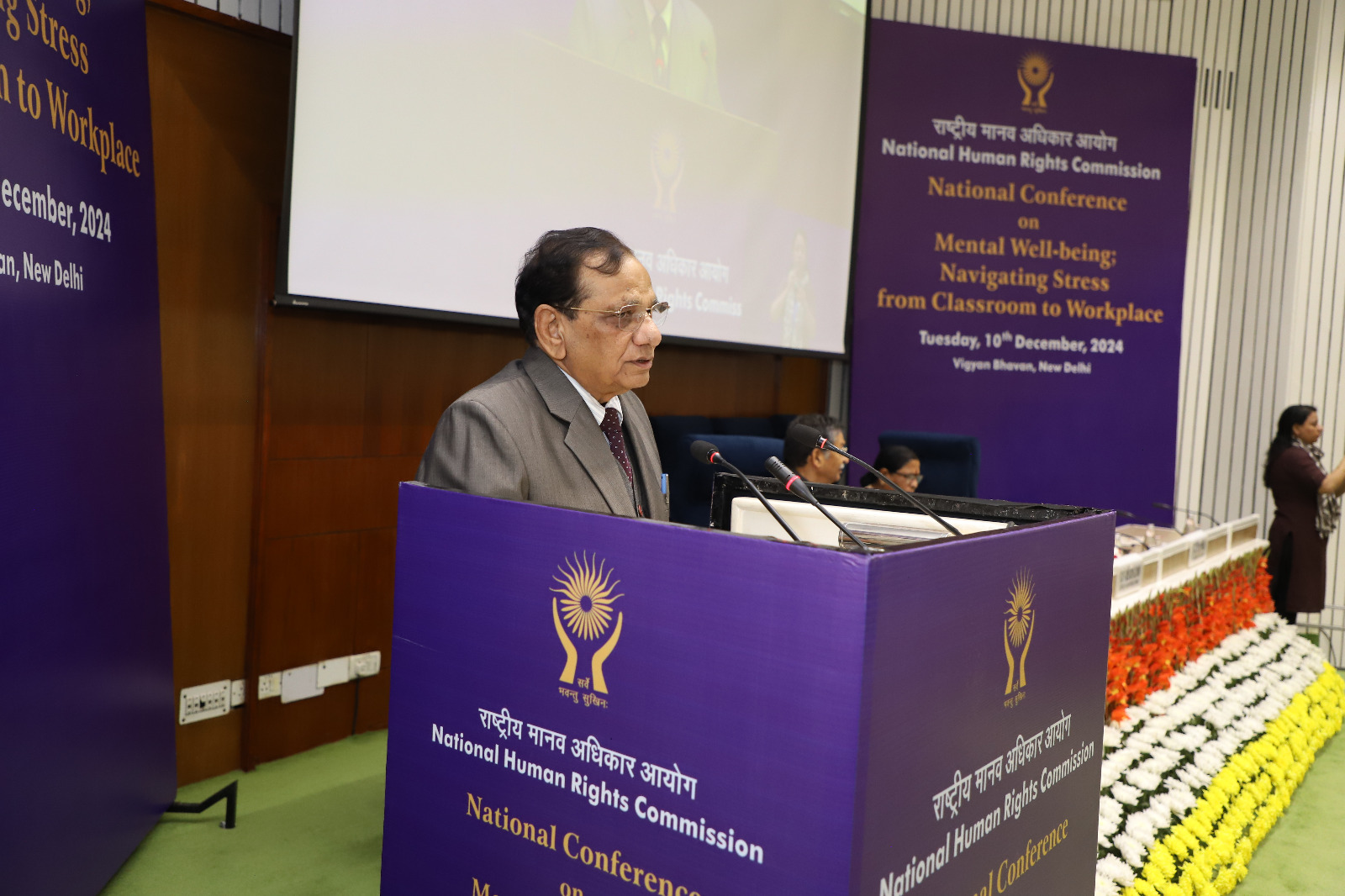
Before this, NHRC, India Secretary General, Shri Bharat Lal said that in India, the challenges related to mental health are stark. Over 1.7 lakh suicides were reported in 2022 alone, with 41% of victims under the age of 30. This data underlines the urgent need for systemic change and multi-sectoral collaboration to address the crisis. People aged 15 to 24 years have the highest suicide rate in India, which is consistent with international trends in youth suicide. 35% of recorded suicides in India occur in this age group.
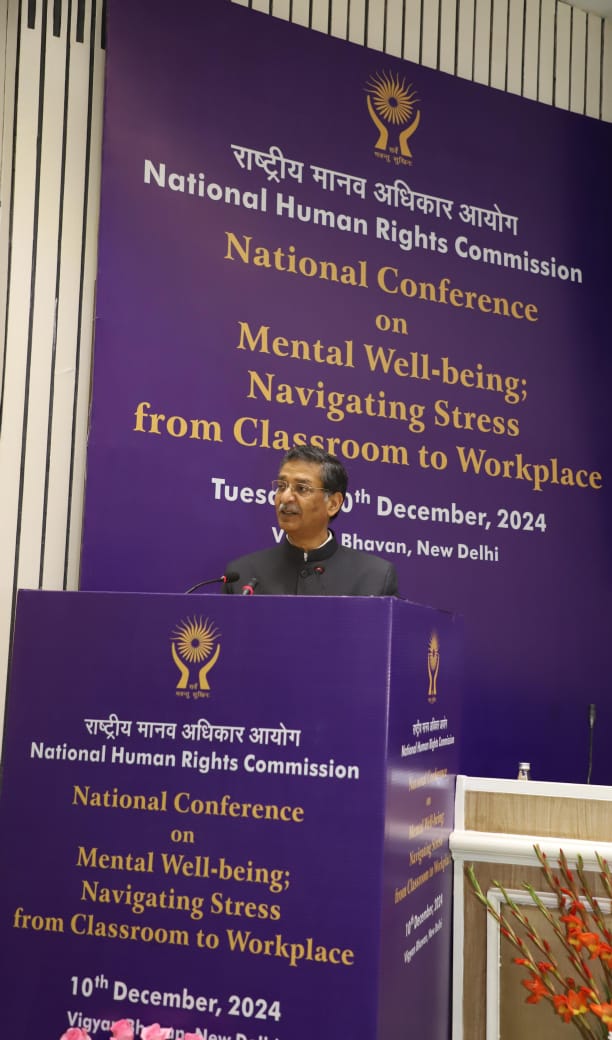
Shri Lal said that mental health is disproportionately affecting the youth, women and elderly. Referring to NHRC’s proactive measures to improve mental healthcare in the country, he also mentioned its various concentrations and the seven key areas for action in this regard issued in its advisory.
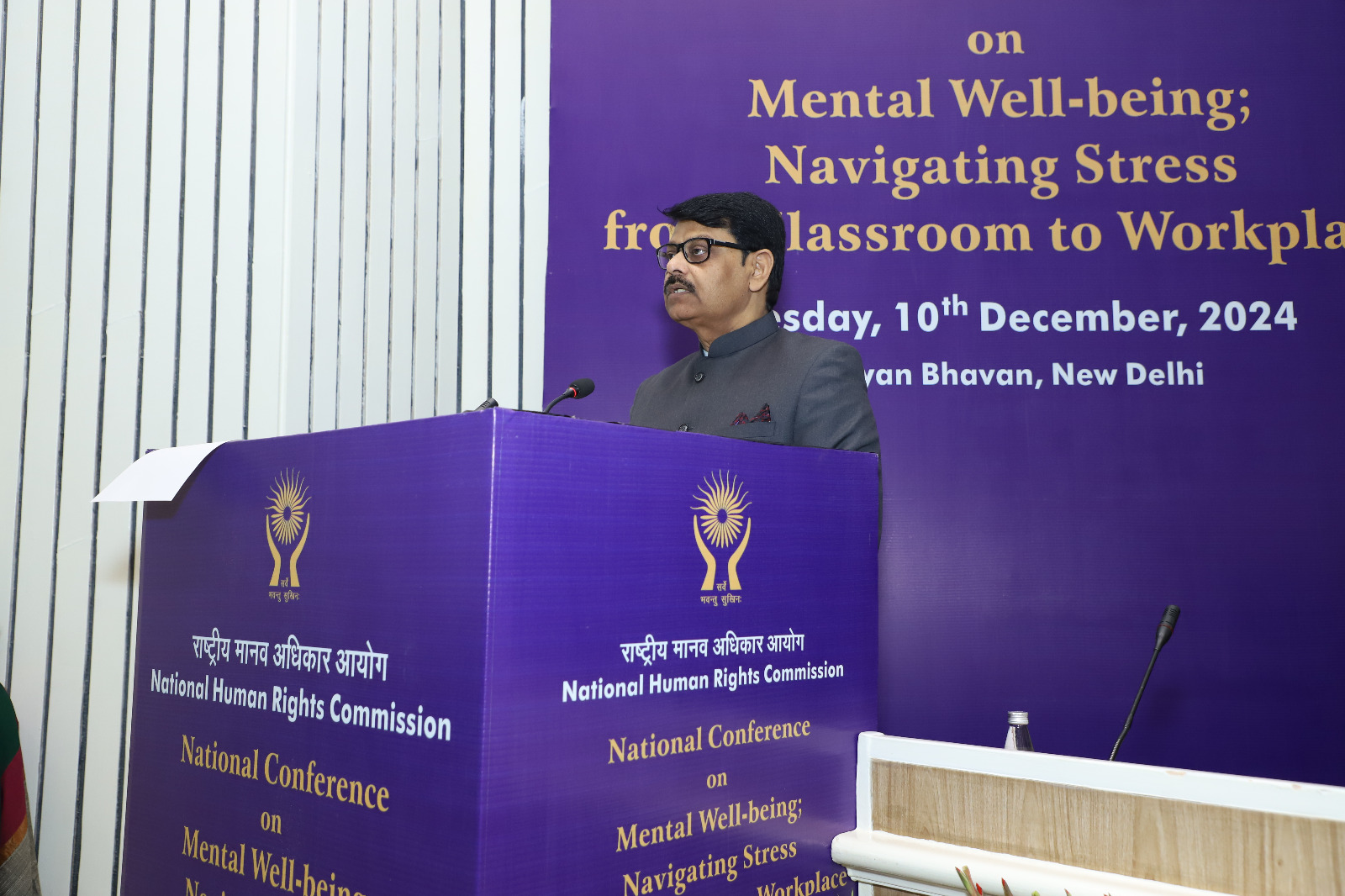
Earlier, NHRC, India Joint Secretary, Shri Devendra Kumar Nim gave an overview of the national conference. He said that there will be three sessions: ‘Stress among children and adolescents,’ ‘Mental health challenges in institutions of higher learning’ and ‘Stress and burnout at workplace.’ It aims to explore the psychological impacts of stress at various stages of life—from education to employment to propose recommendations to promote mental well-being across different sectors.
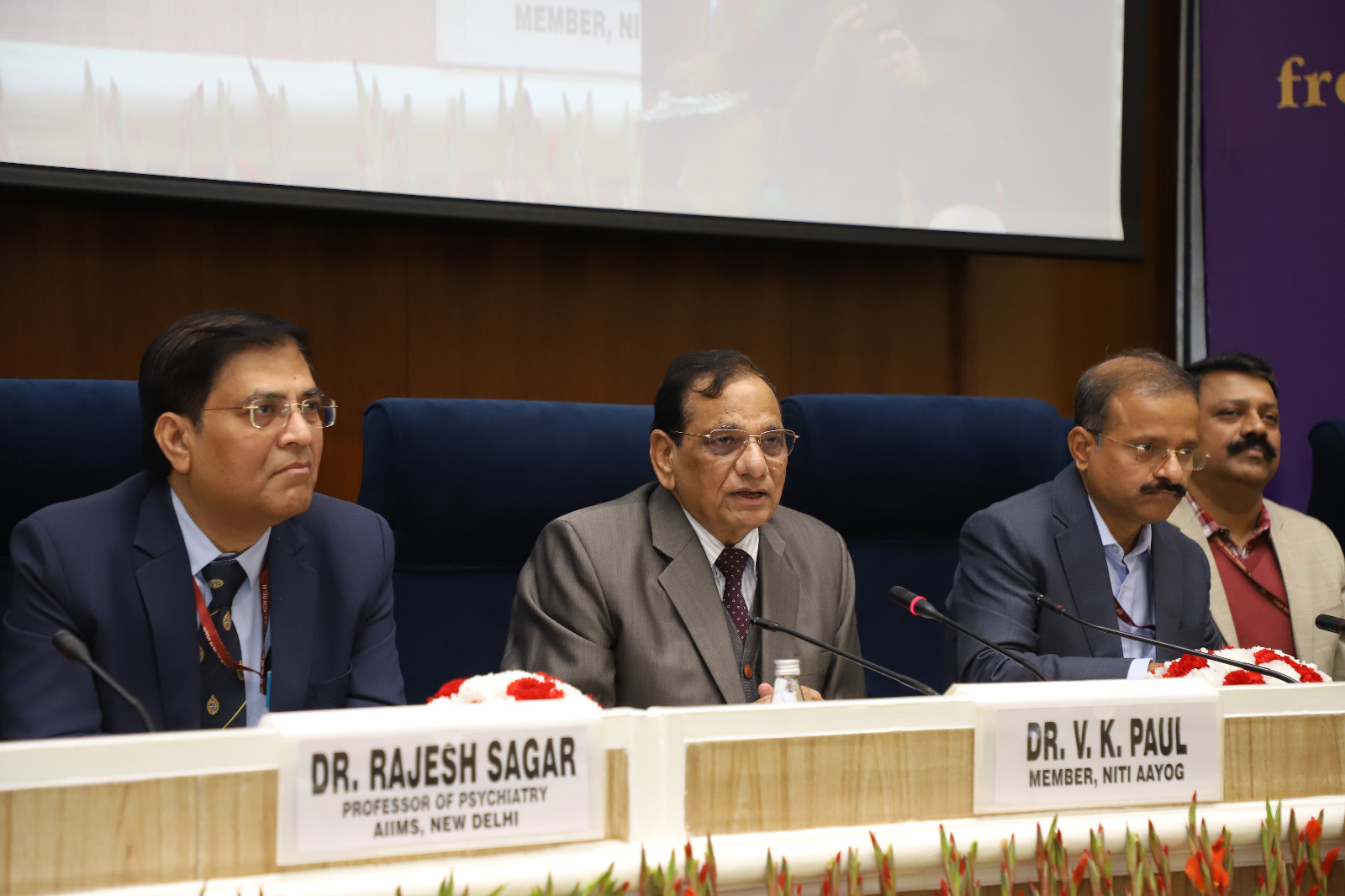
Chairing the first session on ‘Stress among children and adolescents’, Dr V. K. Paul, Member, NITI Aayog said that health is a human right, and by extension it includes mental health also. He said that today children and adolescents are faced with devastating mental health conditions. Referring to an NCERT survey among 4 lakh students, he said that 81% of them were affected by anxiety about exams. 43% of them had mood swings, being in the habit of excessive use of technology-driven communication tools, and mobile phones, and 60% of workplace professionals felt extreme or high stress. The size of the problem is huge, requiring a societal response. It is necessary to find ways to create a mental healthcare system to pinpoint issues causing distress due to bullying, ragging, use of drugs, behavior of bosses, etc.
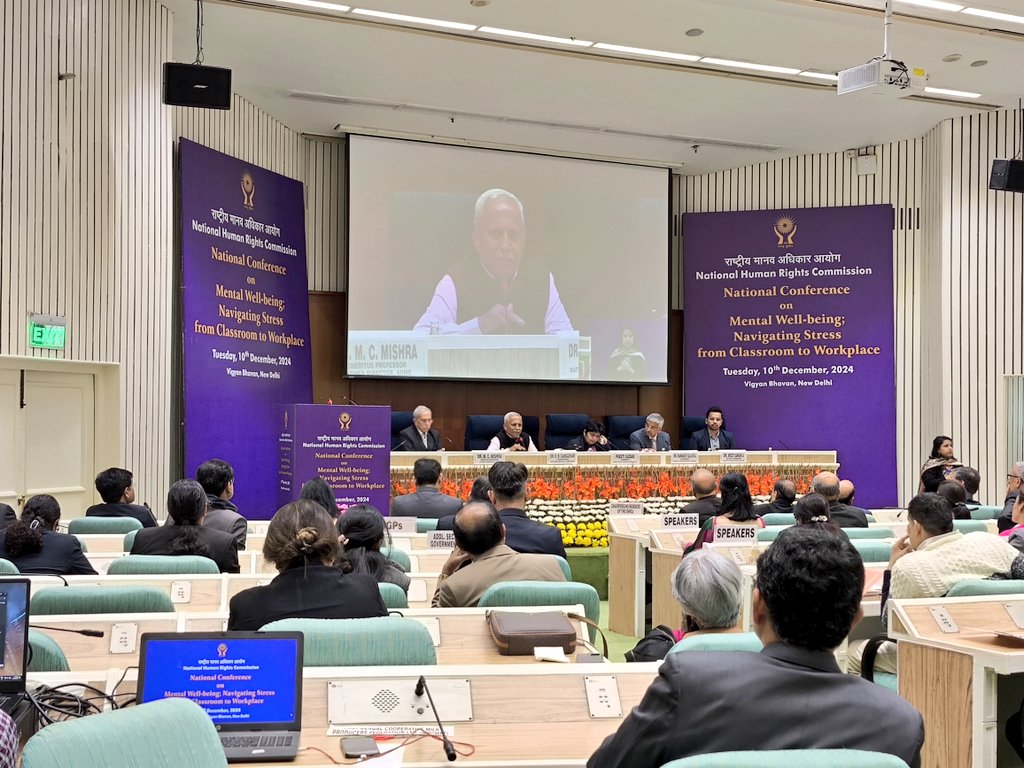
The session was co-chaired by Dr. Rajesh Sagar, Prof. of Psychiatry, AIIMS. The expert speakers included Shri Rahul Singh, Chairman, CBSE, Shri Subodh Kumar Singh, Former DG – NTA, Dr Geeta Malhotra, Country Director, READ India, Dr. Nand Kumar, Prof. of Psychiatry, AIIMS, New Delhi, Dr Charu Sharma, Principal, Dr Rajendra Prasad Kendriya Vidyalaya, Presidents State, New Delhi, Ms. Vijayalakshmi Arora, Child Protection Specialist, UNICEF and Shri Anand Rao Patil, Additional Secretary, PMPY and Digital Education.
The second session on ‘Mental health challenges in institutions of higher learning’ was chaired by Mrs Preeti Sudan, Chairman of, the Union Public Service Commission, and co-chaired by Prof. Abhay Karandikar, Secretary, Department of Science & Technology. The speakers, while recognizing the ongoing efforts of the state, emphasized the need for better counseling services, mental health curriculum, awareness campaigns, and other similar steps that would help promote the overall mental well-being of youth. The speakers included Dr. B. N. Gangadhar, Chairperson, National Medical Commission, Dr M. C. Mishra, Emeritus Professor, Former Director, AIIMS, Dr. Randeep Guleria, Chairman, Internal Medicine, Medanta, Gurugram, Prof Manindra Agrawal, Director, IIT Kanpur and Dr. Meet Ghonia, National Secretary, Federation of Resident Doctors' Association.
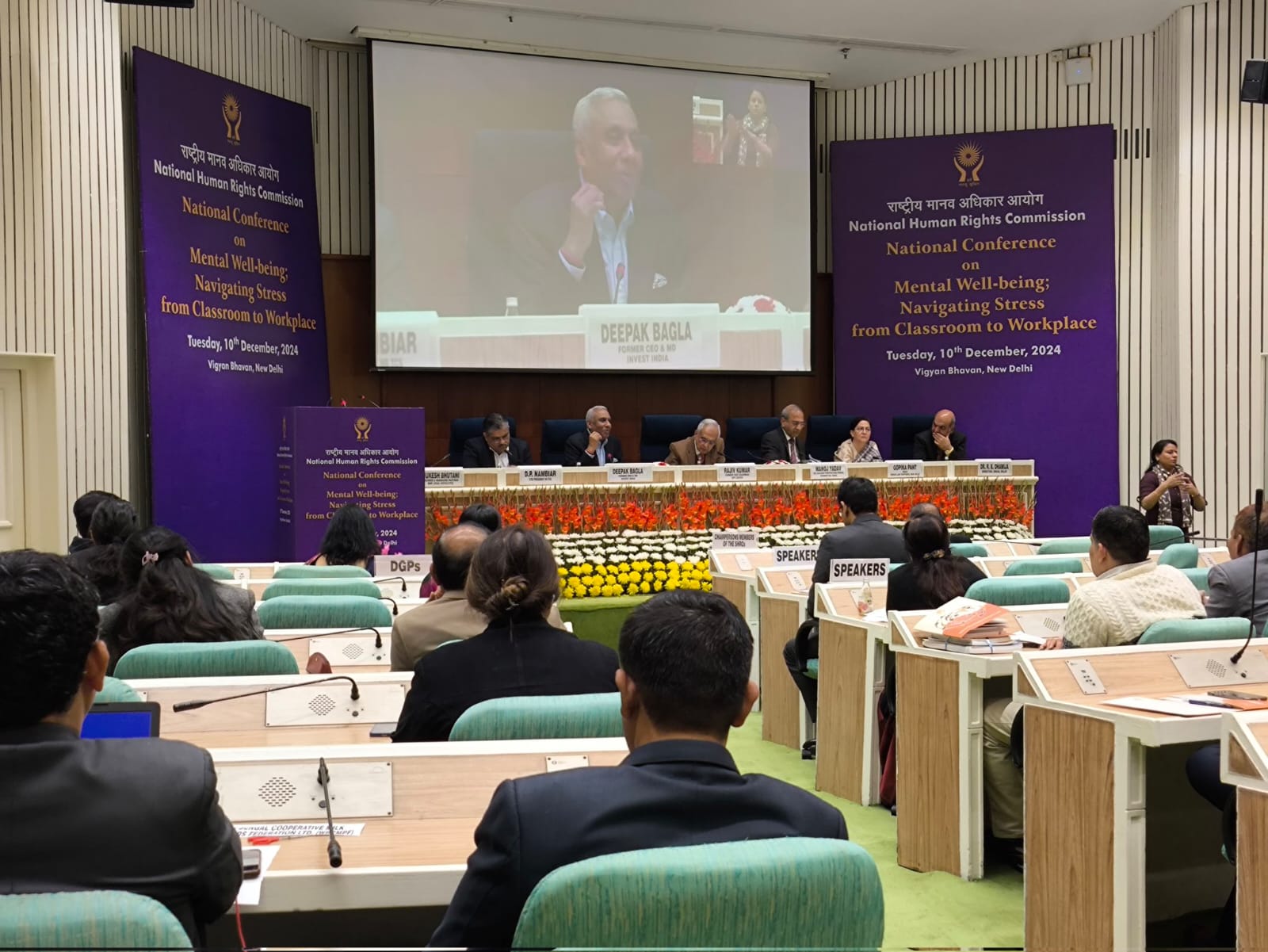
The third session on ‘Stress and burnout at workplaces’ was chaired by Shri Rajiv Kumar, Former Vice Chairman, of NITI Aayog, and co-chaired by Shri Deepak Bagla, Former CEO & MD, of Invest India.
The speakers emphasised work-life balance, particularly among younger employees. They underscored the need for practical implementation of stress management policies, urging leaders to actively enforce strategies that reduce burnout and support mental health. The speakers included Shri Manoj Yadav, DG, Railway Protection Force; Former DG, NHRC, Dr R. K. Dhamija, Director, IHBAS, Delhi, Ms Gopika Pant, Head, Indian Law Partners, New Delhi, Shri Mukesh Butani, Founder & Managing Partner, BMR Legal Advocates and Shri D. P. Nambiar, VP - HR, Tata Consultancy Services.
The Commission will further deliberate upon the various suggestions to finalise its recommendations to the government to improve the mental well-being of individuals in the country.
***







 राष्ट्रीय मानव अधिकार आयोग, भारत
राष्ट्रीय मानव अधिकार आयोग, भारत

